The death toll has risen to 115 after an attack by assailants who burst into a Moscow concert hall and sprayed the crowd with gunfire, Russian officials said.
The head of Russia’s Federal Security Service (FSB) told Russian President Vladimir Putin that four people directly involved in the attack on the Crocus City Hall on Moscow’s western edge were among 11 detained in the aftermath, Russian state news agency Tass said.
The so-called Islamic State group (IS) claimed responsibility for the attack on Friday night in a statement posted on affiliated channels on social media.
Russian agencies appeared to suggest the attack was linked to Ukraine, despite the IS claim. A US intelligence official told the Associated Press that American agencies had confirmed IS was responsible for the assault.
At least three children were among those killed in the attack on Friday night at the hall in Krasnogorsk, Russian authorities said.
Images shared by Russian state media showed a fleet of emergency vehicles still gathered outside the ruins of the hall, a shopping mall and music venue with a capacity of more than 6,000 people.
The attack comes just days after Mr Putin cemented his grip on power in a highly orchestrated electoral landslide.
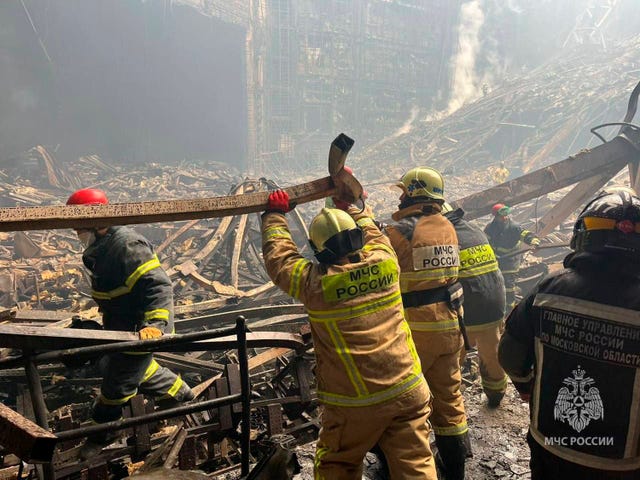
The attack took place as crowds gathered for a performance by the Russian rock band Picnic.
Messages of outrage, shock and support for those affected have since streamed in from around the world.
The UN Security Council condemned “the heinous and cowardly terrorist attack” and underlined the need for the perpetrators to be held accountable.
UN Secretary-General Antonio Guterres also condemned the terrorist attack “in the strongest possible terms”, his spokesman said.
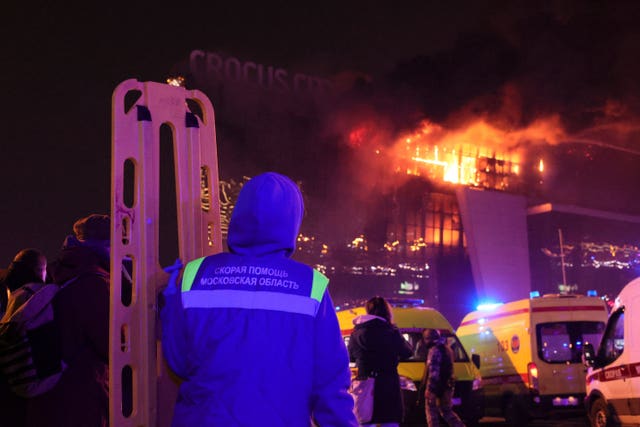
Mr Putin had publicly denounced the Western warnings of a potential terrorist attack as an attempt to intimidate Russians. “All that resembles open blackmail and an attempt to frighten and destabilize our society,” he said earlier this week.
The attack, which left the concert hall in flames with a collapsing roof, was the deadliest in Russia in years and came as the country’s war in Ukraine dragged into a third year.
Moscow mayor Sergei Sobyanin called the raid a “huge tragedy”.
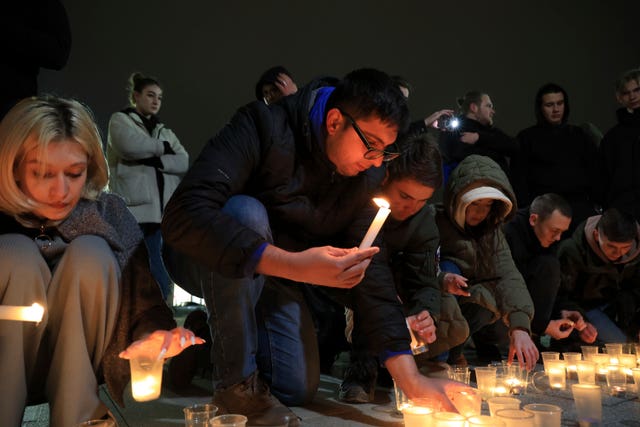
Some Russian news reports suggested more victims could have been trapped by the blaze that erupted after the assailants threw explosives.
Video showed the building on fire, with a huge cloud of smoke rising through the night sky. The street was lit up by the blinking blue lights of dozens of fire engines, ambulances and other emergency vehicles, as fire helicopters buzzed overhead to dump water on the blaze that took hours to contain.
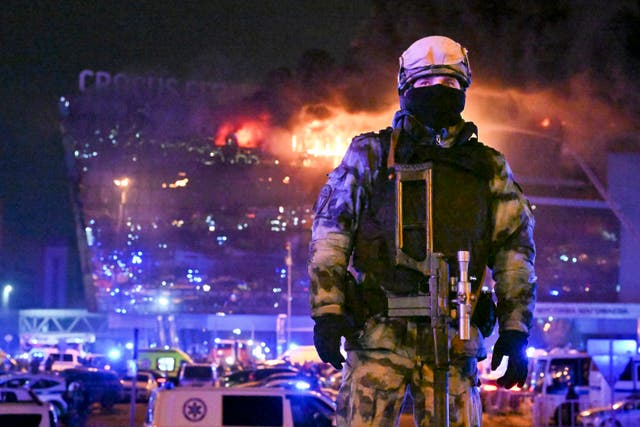
Dave Primov, who was in the hall during the attack, described panic and chaos when the attack began.
“There were volleys of gunfire,” Primov told the AP. “We all got up and tried to move toward the aisles. People began to panic, started to run and collided with each other. Some fell down and others trampled on them.”
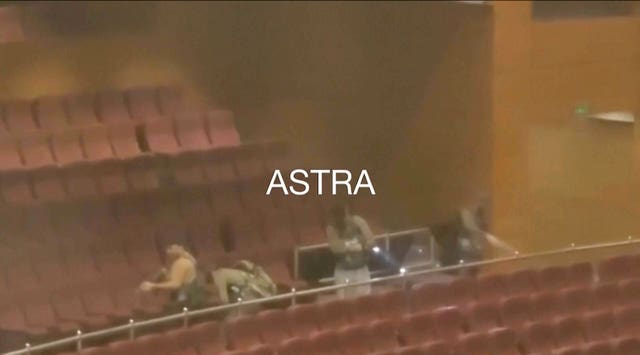
In a statement posted by its Aamaq news agency, IS said it attacked a large gathering of “Christians” in Krasnogorsk on Moscow’s outskirts, killing and wounding hundreds. It was not immediately possible to verify the authenticity of the claim.
However, US intelligence officials confirmed the claim by the IS group’s branch based in Afghanistan that it was responsible for the Moscow attack.
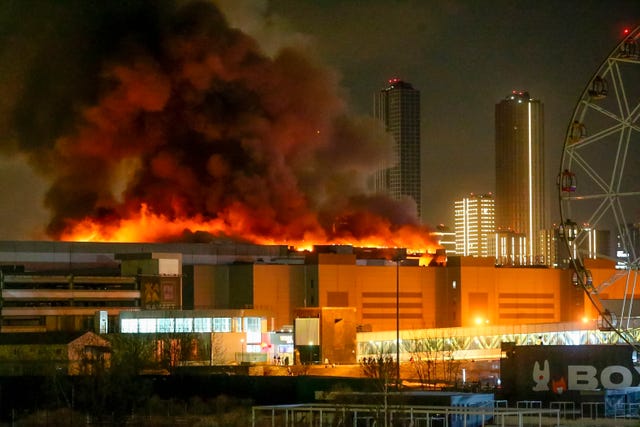
The Kremlin did not immediately blame anyone for the attack, but some Russian legislators were quick to accuse Ukraine and called for ramping up strikes.
Dmitry Medvedev, deputy head of Russia’s Security Council, said that if Ukraine involvement was proven, all those involved “must be tracked down and killed without mercy, including officials of the state that committed such outrage”.
However, Mykhailo Podolyak, an adviser to Ukrainian President Volodymyr Zelensky, denied Ukraine involvement.
“Ukraine has never resorted to the use of terrorist methods,” he posted on X. “Everything in this war will be decided only on the battlefield.”






